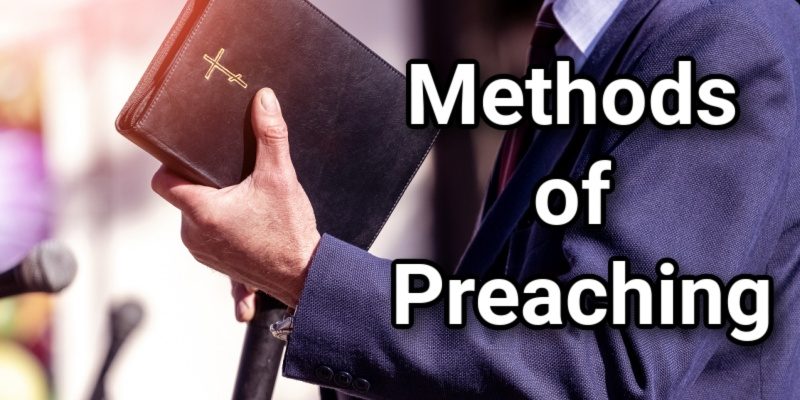Today there are distinct approaches to preaching; one of which is widely called exposition, and the other topical. The term exposition is typically used for verse-by-verse progressions, whereas topical is used for preaching that uses the text as a jumping-off point to discuss a particular topic. The typical line would be to advance verse-by-verse as the superior method of preaching. However, we would argue that these definitions and the debate surrounding them are entirely misguided. First, we would argue that any form of address that only touches on the text to legitimize some topical discussion or agenda is not worthy of being called preaching. We should not dignify such abuses of the Scripture by allowing them into the category of sermons. These are speeches or lectures which use the Bible as though it were any other book. Second, the true definition of exposition is simply the exposing of the text. This can be done verse-by-verse, but it can also be done systematically, or thematically. The key ingredient is that the text is faithfully presented, and explained, and applied.
Methods of Preaching
Verse-by-verse exposition has much to recommend about it. It keeps passages in context, and it prevents passing over difficult portions of text. It provides a robust foundation that covers a variety of issues. For all of these reasons, verse-by-verse exposition ought to be the main method of exposition in the life of the local church.
However, there are times when addressing a specific theme or topic from the Scriptures is necessary and helpful. Topical preaching can give us a fuller understanding of doctrine or discipline. It can more fully address common issues such as marital relationships, parenting, or church life. So long as the texts are faithfully exposited there is nothing wrong with the occasional topical series.
The best results come when verse-by-verse preaching is used in conjunction with topical preaching. We could have the latter occupying Sunday mornings and the former evening or mid-week services. We must also allow for occasional deviations on Sunday mornings as some events in the world and in the life of the local church require a response. The terrorist attacks of nine eleven two-thousand-and-one, and the recent events of twenty-twenty are two widely recognized examples.
The evangelistic is another form that ought to be considered. The first sermon preached in the Church age was evangelistic; see Acts 2. And evangelistic sermons continued to be a cornerstone of the earliest church missions. Today the poor theology of Charles Finney and other revivalists of his era have cast much doubt on evangelistic preaching. However, the testimony of Acts alone is enough to assure us that God does use this mode of preaching.
Where matters get confused is when we have evangelistic sermons aimed at non-believers regularly in weekly services clearly designated by God for those who already believe. We all need to hear the Gospel every week: every day in fact. We do not need a presentation to non-believers every week. In fact, there is little reason to have a purely evangelistic sermon in a regular church service, as in any church service the gospel should be presented plainly enough through the faithful exposition of whatever text we are in, and on some Sundays, the text will naturally demand a more prominent Gospel presentation. Therefore, purely evangelistic preaching is best saved for evangelistic efforts outside of the regular church meetings.
The method of preaching exists to serve a purpose. The choices a preacher makes should always be in light of the goal of all preaching. Knowing that goal is essential to our understanding and appreciation of homiletics so let us turn our attention there.
Lord's Library participates in affiliate programs. We may make a small commission from products purchased through this resource.
- The Bible on Artificial Intelligence: What the Scriptures Say on AI - April 7, 2025
- Views From a Branch: The Problem of Labor and Capital - March 31, 2025
- Views From a Branch: The Dunning-Kruger Effect and You - March 30, 2025














